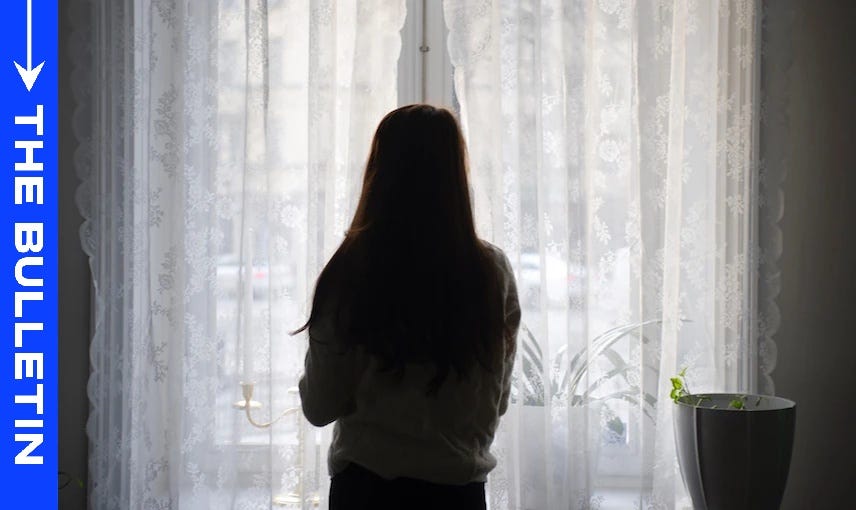Why women are especially vulnerable after a disaster
National has called for penalties for theft and burglary in areas where a state of emergency is declared to double. The police commissioner says theft and burglaries are down but family harm is up 60%
Mōrena and welcome to The Bulletin for Tuesday, February 21, by Anna Rawhiti-Connell. Presented in partnership with Z Energy.
In today’s edition: parliament will sit for its first session of 2023 today; $74m to be invested in tackling school attendance; government agencies buy more petrol and diesel cars; but first, the well documented vulnerability of women after a disaster
Police confirmed a 60% increase in family harm incidents since Cyclone Gabrielle
National party wants penalties doubled for theft and burglary in areas under a state of emergency
When the prime minister said yesterday that we will build back better, safer and smarter after Cyclone Gabrielle he is referring to the need to ensure safety in the future — to protect people, livelihoods and infrastructure against further extreme weather events and climate change impacts. But attention has turned to safety in the present day aftermath of the cyclone, with reports of lawlessness in Hawke’s Bay and Gisborne that conjure up an image of a kind of Wild West. Yesterday, the National party issued a press release calling for a doubling of the sentences for those convicted of theft or burglary in an area that is under a state of emergency. The Act party want the military brought in.
60% increase in incidents of family harm
Chris Hipkins says there is “no state of lawlessness” in Hawke’s Bay. Police aren't currently reporting an increase in crime over and above what they normally expect to deal with on a day-to-day basis. What police have confirmed is a 60% increase in incidents of family harm since Cyclone Gabrielle. Speaking to the AM Show yesterday morning, police commissioner Andrew Coster acknowledged that “crime reporting is harder than usual, but in terms of our numbers, it's the family harm that is up at the moment."
Women’s Refuge “not surprised”
Women’s Refuge were out in advance of yesterday’s confirmation last Thursday. A message from CEO Dr Ang Jury on Facebook read: “Our knowledge of what so often follows a natural disaster of this kind means that we also fear that many more women and children will potentially reach out for our services.” Jury also expressed “no surprise” after Coster’s confirmation and reiterated that the refuge’s services were operational and strongly encouraged anyone experiencing family violence to not hesitate to reach out through its website, social media, or crisis line.
Domestic violence increased by one-fifth after Christchurch quake
Jury isn't surprised because there is years of evidence here and overseas that family harm increases after a disaster and that women are more vulnerable to violence and death as a result of disaster compared with men. A paper published in 2016 looked at the aftermath of the Christchurch earthquakes, Hurricane Katrina and the earthquake in Haiti. In the weeks following the Christchurch earthquake, police reported that domestic violence had increased by one-fifth. In the wake of the floods in Australia last year, Queensland domestic and family violence services reported a surge in the number of calls for help. This article clearly and succinctly outlines why this happens - stress, loss, pre-existing financial vulnerability, increased drug and alcohol use and displacement all play a role. A recent Washington Post report highlighted the connection between extreme weather events and escalating threats against women and girls around the world. In an era of climate change adaptation, it lends broader meaning to the idea of “building back safer”.
The Spinoff's independent, homegrown journalism is only possible because of the support of our members. Their generous donations power all our work and help keep it freely available to all. Tautoko The Spinoff this year by becoming a member, making a new donation or encouraging your organisation to donate.
Parliament kicks off properly for the year today
Previewing the day ahead and recapping the announcements on cyclone recovery yesterday, Toby Manhire writes “The storms of last week will rightly permeate almost every exchange in parliament in the days to come.” By chance, the first three government orders of the day relate to natural hazards, climate change and emergency services. The third reading of the bill to replace the Earthquake Commission Act and rename the Earthquake Commission to the Natural Hazards Commission feels especially pointed.
$74 million to be invested in tackling school attendance
As RNZ reports, the government has confirmed it will establish 82 new attendance officer roles and provide additional investment in working with students with low or declining rates of school attendance. The investment totals $74m. Education minister Jan Tinetti said it would include a commitment to improved and standardised attendance data. Tinetti also said the the funding would allow support for another 3000 young people from the Ministry of Education’s Attendance Service.
It’s one of the most explosive moments in New Zealand’s political history. Now, director Tony Sutorius (Campaign) lifts the lid on the Jami-Lee Ross saga in Elements of Truth. After a fallout with National that threatens to bring the entire party down with it, Jami-Lee Ross seeks a return to politics as co-leader of Advance NZ. As Ross leads a campaign that seems doomed from the start, Sutorius is with him every step of the way – from public meetings, to the Newshub Nation studio, and inside his own home. Streaming on February 21 (tonight), Elements of Truth provides exclusive insight into a former senior MP turned political outcast as he attempts to stage a dramatic political comeback.
Elements of Truth is made with the support of NZ On Air.
1000 new petrol or diesel cars purchased by public service
Newsroom’s Jono Milne reports on the purchase of 1000 new petrol or diesel cars by the public service. Overall, the number of light vehicles in the government fleet has increased by 16% in the past three years. Milne speaks to Nick Morrison, a business owner who’s gotten rid of the company’s petrol vehicles, and replaced them with lease-share electric vehicles. “To learn that at the same time, the government has been increasing their number of internal combustion engine vehicles by nearly a thousand is incredibly disheartening and hard to comprehend" said Morrison.
Click and collect
The North Island’s wet summer will drag on into autumn
New health minister Ayesha Verrall says it will take as long as a decade to fix long-standing issues in the health system
Accessibility legislation described as a tokenistic, toothless failure by disabled people
How chatbots powered by artificial intelligence position Standard American English (SAE) and the Queen’s English over other languages and ways of writing
Displaced RSE workers in the Hawke’s Bay now helping rebuild their communities.
Got some feedback about The Bulletin, or anything in the news? Get in touch with me at thebulletin@thespinoff.co.nz.
If you liked what you read today, share The Bulletin with friends, family and colleagues.
Duncan Greive looks at the two wildly different readings of Matthew Hooton’s speech at Auckland Grammar. Stewart Sowman-Lund talks to Kiri Allan about the mood in Tairāwhiti and why she’s sick of hearing the word "resilient". I’ve done an explainer on climate change adaptation and why we need to continue to mitigate climate change. Chris McDowall has two maps which tell a climate tale of two summers.









